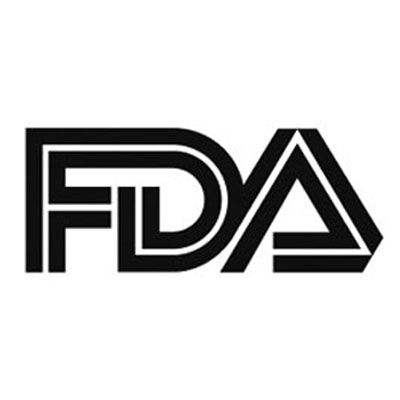FDA Grants Fast Track Designation to NBTXR3 in Locally Advanced Head and Neck Cancers
An FDA Fast Track Designation was granted to the first-in-class radioenhancer NBTXR3 with or without cetuximab for the treatment of patients with locally advanced head and neck squamous cell cancer who are not eligible for platinum-based chemotherapy, according to a press release from Nanobiotix.

An FDA Fast Track Designation was granted to the first-in-class radioenhancer NBTXR3 with or without cetuximab (Erbitux) for the treatment of patients with locally advanced head and neck squamous cell cancer who are not eligible for platinum-based chemotherapy, according to a press release from Nanobiotix.1
NBTXR3 showed preliminary signals of antitumor activity in this patient population in a phase I study of 12 patients with advanced-stage head and neck squamous cell carcinoma (HNSCC). Specifically, 10 of the 11 evaluable patients had a complete response (CR) or a partial response to treatment, which included 2 CRs at dose levels ≤10% and 5 CRs at dose levels >10%.2
Treatment with NBTXR3 was also found to be safe and tolerable in patients with HNSCC. There were no serious adverse events or dose-limiting toxicities (DLTs) observed, which allowed patients to continue with their treatment as planned. The adverse events found to be related to injection with NBTXR3 included grade 1/2 injection pain and tumor hemorrhage.
Patients in the study received either a single intratumor injection or single-arterial injection of NBTXR3 on day 1 followed by intensity-modulated radiation therapy 2 hours later, which lasted for up to 7 weeks. Radiotherapy was continued in all patients unless their tumor did not shrink by 50% of the baseline size. Those patients who did achieve the tumor shrinkage goals then received salvage tumor surgery.
The primary end point of the study was the determination of the recommended dose of the drug and early dose-limiting toxicities. Secondarily, the investigators evaluated safety and tolerability, objective response rate, local progression-free survival, progression-free survival, kinetics profile, and the feasibility of local administration of NBTXR3.
Patients aged 70 years or older who were intolerant to cisplatin or cetuximab or that could not receive the combination of chemoradiation were eligible for treatment in the study. Patients were required to have histologically or cytologically confirmed squamous cell carcinoma of the oral cavity or oropharynx; have a T3 or T4 primary tumor or stage III or IVA disease; be clinically eligible for intra-arterial or intratumor implantation by injection; have a Karnofsky performance status ≥70; and have adequate bone marrow, kidney, and liver function.
The study excluded patients who had prior radiotherapy; tumor-related dyspnea; prior or concurrent non-head and neck malignancies, excluding adequately treated basal or squamous cell cancer of the skin, and in situ cervical cancer; concurrent treatment with any other anticancer therapy; tumor-related dyspnea; tumor ulceration which implies vascular risk; non-measurable disease; and those with infections and illnesses that may have interfered with treatment.
The data from this trial are part of a proof-of-concept for launching a phase III study in which NBTXR3 will undergo further assessment for the treatment of head and neck cancers.3
References
- Nanobiotix announces fast track designation granted by US FDA for investigation of first-in-class nbtxr3 in head and neck cancer [news release]. Cambridge, Massachusetts: Nanobiotix; February 10, 2020. https://bit.ly/2vpwDQU. Accessed February 10, 2020.
- Le Tourneau C, Calugaru V, Jouffroy T, et al. A phase 1 trial of NBTXR3 nanoparticles activated by intensity-modulated radiation therapy (IMRT) in the treatment of advanced-stage head and neck squamous cell carcinoma (HNSCC).J Clin Oncol. 2017;35(suppl 5;abstr 6080). doi: 10.1200/JCO.2017.35.15_suppl.6080.
- Nanobiotix announces plan for global phase III head and neck cancer registration trial along with overall development update [news release]. Cambridge, Massachusetts: Nanobiotix; January 7, 2020. https://bwnews.pr/2Hczpfc. Accessed February 10, 2020.
Neoadjuvant Therapy Could Improve Outcomes for Nasal and Paranasal Sinus Cancer
September 17th 2024Neoadjuvant chemotherapy prior to surgery and postoperative radiation therapy could improve organ preservation in patients with T3 and T4a nasal and paranasal sinus squamous cell carcinoma.
Read More